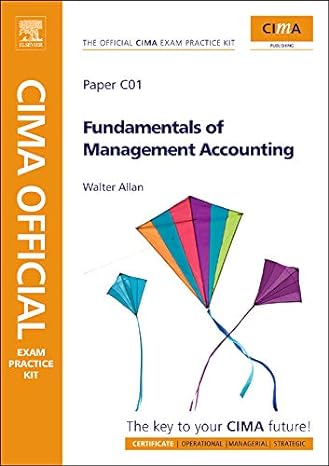Answered step by step
Verified Expert Solution
Question
1 Approved Answer
According to the US Department of Education, the average salary of a Stevens School of Business finance major three years after graduation was about $65,6001
According to the US Department of Education, the average salary of a Stevens School of Business finance major three years after graduation was about $65,6001 Assume that is the salary you will make after graduation. Answer the following questions based on the lifestyle you'd like to live after graduation. 1. How much will you pay for health care each year2? 2. How much do you plan to save for retirement each year3.2 3. What is your taxable income for federal income taxes, NJ state income taxes, and FICA? 4. What is your total annual federal income tax, NJ state income tax, and FICA taxes? What is your average tax rate (combined for all three taxes)? 5. What will be your monthly take-home pay (after health care, retirement savings, and taxes)? 6. List and estimate your essential expenses per month. These are expenses that are necessary for living and to payoff debts. Examples include rent, student or car loan payments, car insurance, utilities, groceries, etc. 7. List and estimate your discretionary purchases per month. These purchases are expenses you don't need to survive but bring you joy. Examples include gym fees, salons, movies, streaming services, video games, vacations, etc. 8. List and estimate the money you plan to save for large future purchases. This savings can be for large purchase you expect to make at some point in the future. Examples include saving for a down payment on a house, buying a car, saving for graduate school, etc. 9. Do you think the budget you designed is realistic? Why or why not? Taxes If you choose to live in New Jersey (or most states) after graduation you need to pay both federal income and state income taxes. In addition to income taxes, you will also pay FICA (Federal Insurance Contributions Act) taxes to fund Social Security and Medicare. These taxes will reduce your take-home pay, so it is important to think about them. Since each of the three taxes you pay (federal income, state income, and FICA) are governed by different rules, the definition of "taxable income" will vary for each tax. Each tax allows you to deduct certain amounts from your gross income before figuring the tax. These deductions lower the amount of taxable income you have and by extension lower your tax bill. Below is a summary of the deductions you can take under each tax: Standard Deduction Health Care Retirement Savings Federal Income Tax Rates (2022-Single Filers) Federal Income $ 12,950 NJ State Income $1,000 100% 100% 100% 0% NJ State Income Tax Rates (2022-Single Filers) Bracket Tax Rate Bracket Tax Rate 10% $0-$ 9,950 1.400% $0-$ 20,000 12% $9,951-$ 40,525 1.750% $ 20,001-$ 35,000 22% $ 40,526-$ 86,375 3.500% $ 35,001-$ 40,000 24% $ 86,376-$164,925 5.525% $ 40,001-$ 75,000 32% $164,926-$209,425 6.370% 35% $209,426-$523,600 8.970% 37% $523,601 and over 10.75% $ 75,001-$500,000 $500,001-$1,000,000 $1,000,001 and over FICA Tax Rates (2022-Single Filers) 7.65% Tax Rate Bracket $0-$147,000 1.45% $147,001-$200,000 2.35% $200,001 or over FICA $0 100% 0%
Step by Step Solution
There are 3 Steps involved in it
Step: 1

Get Instant Access to Expert-Tailored Solutions
See step-by-step solutions with expert insights and AI powered tools for academic success
Step: 2

Step: 3

Ace Your Homework with AI
Get the answers you need in no time with our AI-driven, step-by-step assistance
Get Started


